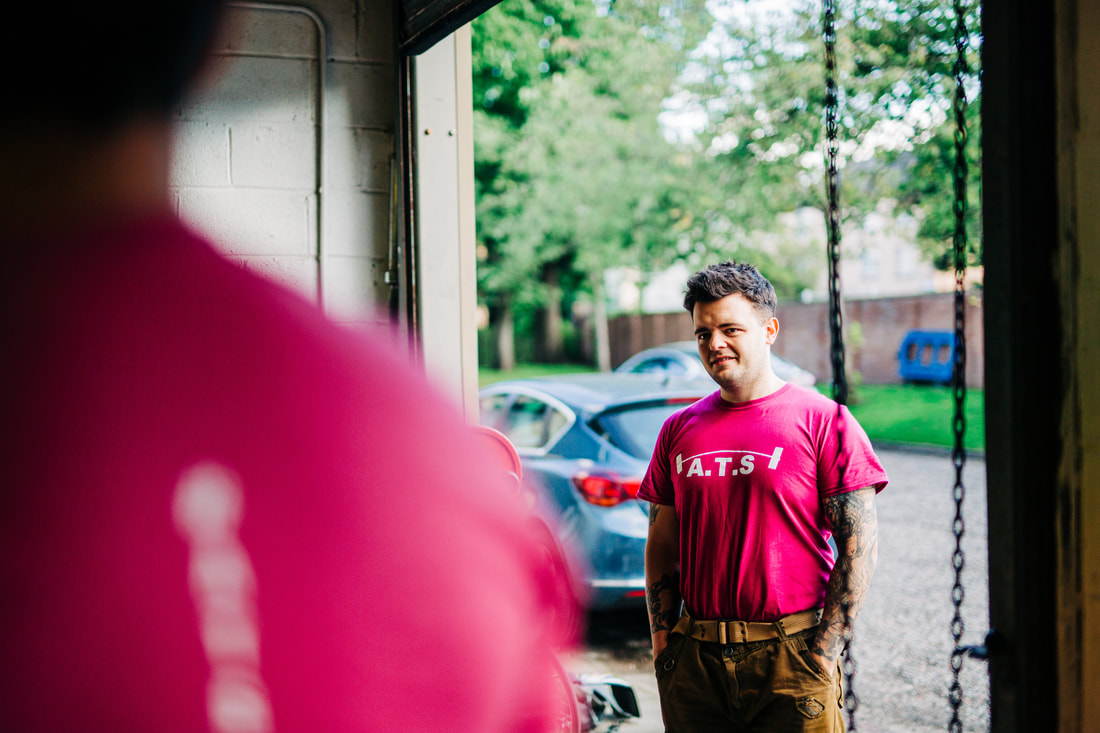|
Estimated reading time: 7 minutes We’ve spoken before in our blogs about value-driven actions, and it’s important for forming and sticking with long term behaviours related to health and fitness. To that end, in this blog post, I’ll be showing you how to analyse where you may be falling short in your choices. What I mean by that is not that you make an objectively ‘wrong’ choice, but that you make a choice that you don’t agree with, or doesn’t fit with the health and fitness outcomes that you want for yourself. In the interest of keeping things practical, I’d like you to think about and write down some things that have stopped you from following through on your health and fitness pursuits, I’ll list a few common examples, but you should try it out yourselves!
Now we get to the handy dandy acronym (that also lets me shoehorn a nerd reference as the title) F.E.A.R which breaks down into: F = Fusion (stuff your mind tells you, the fusion of thoughts and reality) E = Excessive goals (your goal is too big, or you lack the skills, time, money, health, or other resources) A = Avoidance of discomfort (unwillingness to make room for the discomfort this challenge brings) R = Remoteness from values (losing touch with - or forgetting - what is important or meaningful about this) Let’s expand on these briefly. Fusion is probably the hardest one to identify and overcome. People’s brains don’t enjoy incomplete, non-rational things, and they tend to fill in the gaps to make things fit together, rather than help you. This is very obvious in the last two points listed above ‘I won't be any good at it.’ This plays into another point as well, but you have no basis to form that opinion, other than the idea that when people are new to things, they aren’t very competent at them. Well… yeah? Of course, you aren’t good at the thing you’ve never done before. This leads to the acceptance of discomfort part of this, but my main point is learning to defuse the thought of ‘i won't be good’ from ‘I won't be good, so why start’. Thoughts are not reality/facts, you can have the thought that you don’t like the idea of not being the new person, or not being good at something, but that shouldn’t dictate your actions. Excessive Goals is fairly straightforward, though still quite prickly for some people since it requires an objective assessment of self-standing. I would probably run into this problem if I set myself the goal of playing in the NBA. As a 5’5 (on a good day) 31 year old who’s never played basketball before outside of the occasional pickup game, and doesn’t even live in the same continent as the league, I lack… pretty much any of the criteria that might provide a foundation to build towards that goal on. If I was super set on achieving, might require some objective reassessment. Avoidance of discomfort, this one is a biggie in exercise/health/fitness. Workouts come with soreness, proper sleep comes with a lack of mindless tv shows, and nutritious healthy foods come with a lack of hyper palatability. There are so many avenues to lead you away from your goals purely to avoid the discomfort that comes with a lot of these things, the catch, however, is that discomfort happens regardless, and choosing to participate in some additional discomfort, to live the way you want to, is the secret sauce a lot of people are missing out on. Remoteness from values again is pretty straightforward. You just get lost in the sauce and forget your ‘why’. Without that deep directing value, it’s very easy to lose your way and stop committing to things that you want for yourself Photo credit: Tom Hosking With those covered, let’s get on to the next part of the practical exercise. Here’s our list of reasons why we’ve hypothetically stopped or let slip health/fitness behaviours in the past.
Hopefully, you have your own list, now what we do is we categorise based on what part of F.E.A.R they fall into.
Here’s a bonus tip, if you want to really CRUSH your meal prep habit, only allow yourself to watch your favourite show, or listen to your new favourite podcast, while meal prepping. Habit stacking new things on top of old ones already ingrained is a great way to get new ones to stick. 5) A bit of fusion, and avoidance here for me. No one likes not being competent at stuff, it’s not even about being good. It’s about being so inexperienced that you know people can tell you are new, then all the fusion spirals fire up (everyone can tell I don’t know what I’m doing, everyone’s watching me, what if they laugh at me?) Accepting and admitting to now knowing a thing, is the fastest first step to knowing a thing. I’ve worked in gyms for 10 years now, I can tell you that the people who improve the most efficiently are the people who come up and say some version of that phrase. ‘Hey I’ve never done X before, can you please show me where I should start?’ Try it out. 6) This one is a spicy meatball. This usually isn’t something people will say in their own heads, let alone out loud, but it is usually underpinning a few things. Fear of failing or fear of change cripples some people, sometimes for life. Things ‘might’ be worse if you do X… they also might get ten or a hundred times better. You don’t know. But what you do know, is that you aren’t cool with how things are now. Photo credit: Tom Hosking For those of you who like acronyms, there’s obviously one for the solutions to F.E.A.R as well. Which is D.A.R.E (I don’t write this stuff okay) D = Defusion A = Acceptance of discomfort R = Realistic goals E = Embracing values Here are some strategies for each to help you overcome your F.E.A.R Defusion strategies: name the story, thank your mind, acknowledge ‘Here’s reason-giving or ‘Here’s judging’, name the demon/monster/passenger, my personal favourite is to pretend it’s your nemesis’ social media posting directly to your brain, and there’s zero chance you’re letting that person get one upon you. Acceptance strategies: name the feeling, observe it like a curious scientist, rate it on a scale of 1 to 10, commit to allowing it, breathe into it, make room for it, and give it a shape and colour. Realistic goal-setting: if you lack skills, set new goals around learning them; if your goal is too big, break it down into small chunks; if you lack resources, brainstorm how you can get them; if you lack time, what are you willing to give up in order to make time?; if the goal is truly impossible, e.g. due to health or financial issues, or external barriers over which you have no direct influence, then set a different one. Embracing values: connect with what matters to you about this goal. Is it truly meaningful? Is it aligned with your values? Is it truly important? Is it moving your life forward in the direction you wish to go? Hopefully, you found this informative and helpful! At the very least read Frank Herbert’s Dune, where the title was quoted from, it’s a dope book.
As always feel free to contact me to ask questions about anything @atsapproved on all social media.
0 Comments
Leave a Reply. |
Archives
March 2024
Categories
All
|
Proudly powered by Weebly





 RSS Feed
RSS Feed